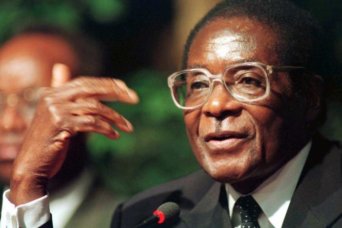- About
- Topics
- Picks
- Audio
- Story
- In-Depth
- Opinion
- News
- Donate
- Signup for our newsletterOur Editors' Best Picks.Send
Read, Debate: Engage.
Raise your hand if you saw this coming. How many hands is that? 10? 20? 30? OK – well, I'll say this much, you're all either lying, or you're much, much better informed than I am. I rule nothing out.
Last week, the world witnessed something resembling a coup in Zimbabwe. It was a de facto coup, but the army insisted that it was only protecting the President, Robert Mugabe, from unnamed, dangerous individuals. However, it was reported around the world as being a coup, as a week earlier, Mugabe had fired his Vice-President, Emmerson Mnangagwa – a move which was reported to make way for Grace Mugabe, the President's wife to take power.
The country, the ruling party, Zanu-PF and the army sensed its moment, and placed the ageing autocrat under house arrest. He was also removed from the leadership of the party on Sunday, and Grace Mugabe was expelled. Finally, Emmerson Mnangagwa was reinstated, and pending the successful transfer of power, either through impeachment, force or peaceful, is expected to become President later this week.
Mugabe has ruled since 1987, making him the world's longest serving living leader. He also embodied the worst excesses of power during his rule – not only turning Zimbabwe into a police state, but also being directly responsible for crimes against his people, driving the economy headlong into the abyss and subjecting national political institutions to his will. With his impending death (he is 91 years old), the country has tired of his breathless attempts to transform Zimbabwe into a playground for himself.
He is now running out of options. It's his endgame. Does he fight, flee or give in?
Although it is too early to say whether the coup will be successful in the long-term, or if Zimbabwe will be able to build a more equal society after Mugabe's death, the event is a reminder that even the most entrenched of powers can be eroded by popular consent to fight against it.
